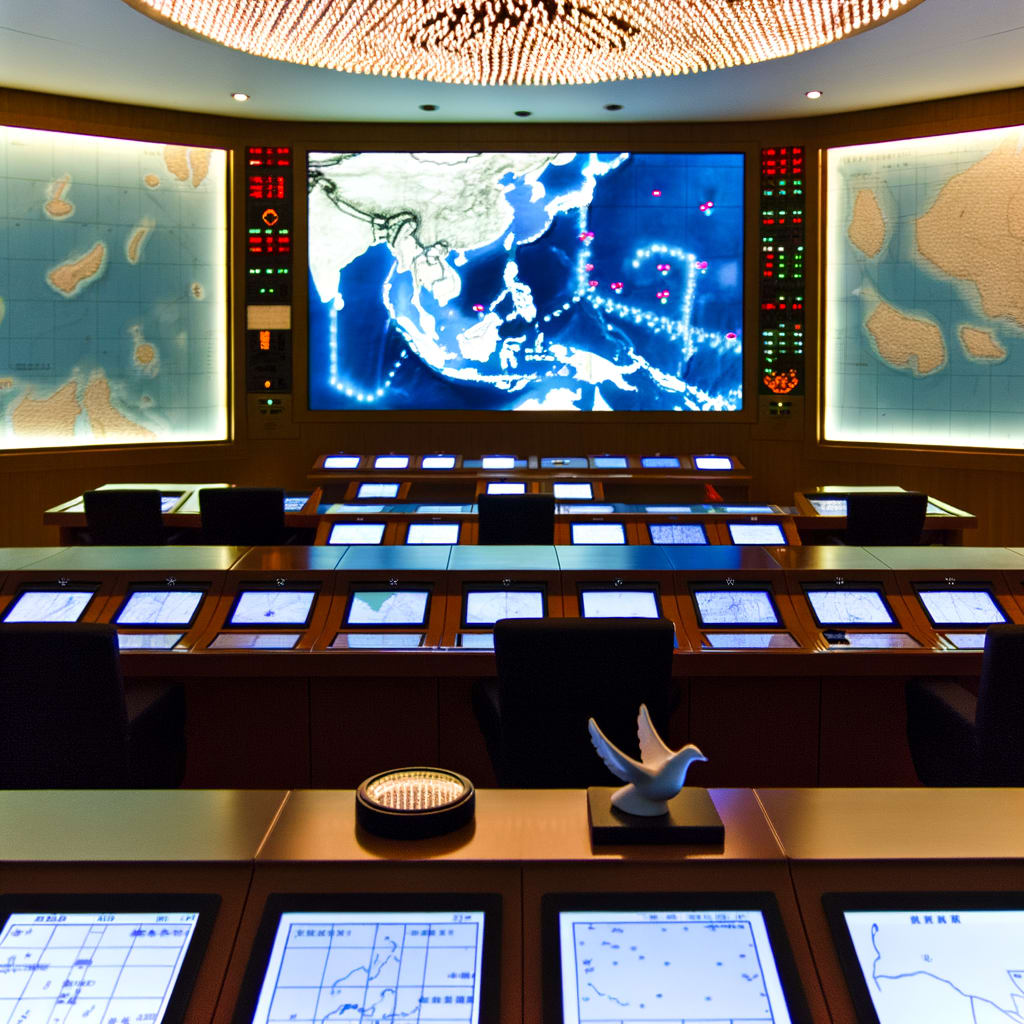Chinese Vessels Collide in South China Sea Pursuit of Philippine Boat
In an escalation of tensions in the disputed South China Sea, two Chinese vessels collided while chasing a Philippine patrol boat near Scarborough Shoal, according to various international news sources. The incident has added further strain to the already tense situation in the contested waters.
Background and Context
These recent developments come in the wake of a documentary film set to release in Philippine cinemas that Beijing had previously sought to ban. The film, ‘Food Delivery’ by director Baby Ruth Villarama, was denounced by the Chinese consulate-general in Auckland for being rife with disinformation and false propaganda
[South China Morning Post]. Meanwhile, the Philippines has maintained a firm stance on its presence in the contested areas, with President Ferdinand Marcos Jnr stating that the country does not want to go to war but will never order its vessels to withdraw [South China Morning Post].
Collision Details
The collision between the Chinese Navy and Coast Guard vessels was recorded in a video released by Manila, showing a China Coast Guard ship and a larger vessel bearing the number 164 on its hull colliding with a loud crash [Japan Times]. Manila claimed that the crash rendered a Chinese warship unseaworthy
[BBC News]. Chinese coastguard spokesperson, Gan Yu, however, asserted that the Chinese coastguard took necessary measures to expel Philippine vessels after they ignored repeated warnings from the Chinese side and insistently intruded into the...
[South China Morning Post].
Regional Implications
This incident comes at a time of heightened regional tensions. The Philippine President had recently suggested during a visit to India that his country would have to get involved
if a conflict between Beijing and Washington erupted. This statement was met with a warning from the Chinese foreign ministry, accusing Marcos of playing with fire
[South China Morning Post]. Marcos responded by expressing his confusion over the Chinese warning. He also hinted that if there was a war over Taiwan, the Philippines would be drawn in whether we like it or not, kicking and screaming
[Deutsche Welle].
Additionally, Beijing is on high alert over India's involvement in the South China Sea disputes after the first-ever joint patrol between India and the Philippines in these strategically important waters [South China Morning Post].
Current Status
While the situation remains volatile, it is clear that the Philippines is resolute in its stance towards the contested areas. Marcos, in his statements, affirmed that the Philippines does not seek war but will not retreat from the contested areas. However, the recent collision of Chinese vessels and the potential for further international involvement indicate a complex and uncertain future for the South China Sea disputes.

